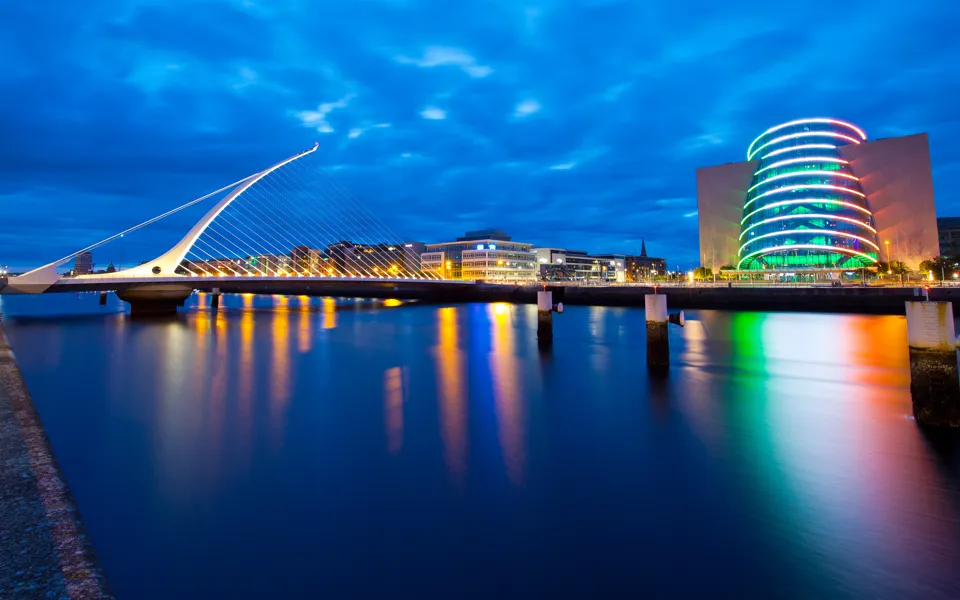
Heat Decarbonisation in Ireland: Challenges and Opportunities for Industry
21 Feb 2025
As Ireland accelerates its journey towards net zero emissions, industrial and commercial sectors face increasing pressure to decarbonise heat – a crucial but often overlooked aspect of energy use. With heating accounting for a significant proportion of industrial energy consumption, transitioning to low-carbon solutions presents both challenges and opportunities for businesses operating in Ireland.
The challenges of heat decarbonisation
Ireland remains highly dependent on fossil fuels for heat generation, with natural gas, oil, and solid fuels still dominating their energy mix. Industrial processes in manufacturing and food production, for example, rely heavily on high-temperature heat sources currently supplied through fossil fuel use. There are challenges associated with fuel switching to lower carbon alternatives, such as renewable energy derived electricity or hydrogen. Moreover, fuel switching is not conducive to all processes or industries, with some alternative technologies still nascent. This dependence will make decarbonisation a complex and capital-intensive process, as upgrading industrial heating systems to low-carbon alternatives will require significant upfront investment.
The Irish government has set ambitious decarbonisation targets, but policies around industrial heat are still evolving. Businesses need clearer guidelines on regulatory changes, carbon pricing mechanisms, and incentives for heat decarbonisation. Without a well-defined policy framework, industries may hesitate to commit to long-term investments in low-carbon technologies. Heat pumps, hydrogen boilers, and biomass solutions potentially involve high capital investment, and although government incentives exist for certain technologies or fuel switching activities, these may not adequately offset the expense for large-scale industrial operations. These factors combined with the uncertainty around the future cost of carbon, electricity, and alternative fuels pose many challenges for long-term investment planning.
As industries move towards electrification of heat production, Ireland's electricity grid will be under increased pressure to keep pace with its growing demand. Without robust grid infrastructure expansion, the transition to electric solutions may be far more challenging for industry. It is difficult to achieve the high temperatures required for many industrial processes (above 500°C) with current renewable technologies. Hydrogen, biomass, and biogas are potential solutions, but their availability and affordability remain uncertain, and while renewable electricity from wind and solar is expanding, Ireland is still in the early stages of developing a sustainable fuels economy.
Installation implications
Not only are there challenges facing organisations in the supply of renewable energy and therefore decarbonised heat, but organisation specific challenges also exist. Retrofitting or replacing existing heating systems in industrial and commercial facilities can cause significant production downtime, which is a major concern for sectors that rely on continuous operations, such as food processing, pharmaceuticals, and manufacturing. Furthermore, in certain cases, significant process changes are required to incorporate low-carbon heating solutions, increasing disruption and the financial investment required.
Unlike residential settings, where a heating upgrade can be scheduled with minimal impact, industrial sites require careful planning to avoid disrupting critical processes. Additionally, many older facilities were not designed with space for new technologies like heat pumps or biomass boilers, making installation challenging. Even when space is available, businesses must also consider supply chain coordination, contractor availability, and the time needed for testing and commissioning. Furthermore, employees may require specialised training to operate and maintain new heating systems, adding another layer of complexity to the transition.
The shift to low-carbon heating is hampered by gaps in supply chains and expertise, making it difficult for businesses to secure the necessary equipment and skilled professionals. Heat pumps, biomass boilers, and hydrogen-ready systems require certified installers and engineers, but the availability of these specialists in Ireland remains limited, leading to longer lead times and higher costs.
In addition, the supply chain for renewable fuels like biomass and biogas is still developing, meaning businesses face potential shortages and price volatility when trying to switch from fossil fuels. Even when the equipment is available, delays in manufacturing and logistics – exacerbated by global supply chain disruptions – can slow project timelines and add unexpected costs. To overcome these hurdles, businesses need to engage early with suppliers, explore local sourcing options and collaborate with industry peers to build a more resilient supply chain for low-carbon heat solutions.
Without a well-planned strategy, operational disruptions can lead to increased costs and lost productivity, discouraging businesses from making the switch to low-carbon heating solutions.
Opportunities for Industry
Despite these challenges, Irish businesses have significant opportunities to lead in industrial heat decarbonisation, benefiting from cost savings, sustainability leadership, and competitive advantages. As Ireland continues to expand its renewable electricity generation, businesses that electrify heating processes can benefit from lower emissions and long-term energy cost stability.
One of the most cost-effective ways to reduce emissions is improving energy efficiency. Industrial facilities can invest in heat recovery systems, waste heat utilisation, and better insulation to reduce energy demand. Many businesses have already implemented combined heat and power (CHP) systems, but futureproofing them for hydrogen or biogas could provide further emissions reductions. Meanwhile, industries with low-to-medium temperature heat requirements (<200°C), heat pumps and electric boilers are becoming viable alternatives.
Boilers utilising biomass and biogas produced from anaerobic digestion present viable options for industries seeking immediate decarbonisation solutions. Ireland's agricultural sector has the potential to expand biogas production, creating synergies between industry and the farming sector. With appropriate incentives and supply chain development, biomass and biogas could become competitive alternatives to fossil fuels. Hydrogen has the potential to play a major role in industrial heat decarbonisation, particularly for high-temperature processes. Although Ireland's hydrogen strategy is still emerging, industries can begin preparing by exploring hybrid fuel systems, investing in hydrogen-ready boilers, and engaging in pilot projects that demonstrate feasibility.
Sustainability is becoming a key factor in business competitiveness. Customers, investors, and supply chain partners are increasingly prioritising companies with strong environmental commitments. Industrial leaders who invest in heat decarbonisation now will be better positioned to meet regulatory requirements, enhance brand reputation, and secure long-term contracts with sustainability-conscious clients. Currently, the Irish government and the EU are offering financial incentives for businesses transitioning to low-carbon heating, including grants under the Support Scheme for Renewable Heat (SSRH) and potential access to carbon trading markets. Businesses that proactively reduce emissions can therefore benefit from financial support while also avoiding rising carbon taxes as well as maintaining their sustainability credentials and competitive edge with their customers.
Conclusion
Heat decarbonisation in Ireland presents both significant challenges and compelling opportunities for the industrial sector. While the transition away from fossil fuels requires substantial investment and planning, businesses that take early action can benefit from cost savings, regulatory compliance, and enhanced market positioning. By embracing energy efficiency, electrification, bioenergy, and future hydrogen solutions, Ireland's industries can play a crucial role in achieving the nation’s climate goals while maintaining global competitiveness.
Organisations should take the time to assess their heat decarbonisation strategies, explore available funding opportunities and engage with policymakers to shape their low-carbon industrial future. The transition may be complex, but those who act proactively will reap the greatest rewards.
Speak to an expert
With a strong understanding of policies, regulations and key market drivers, Ricardo’s experts in heat decarbonisation can provide insight to the features and benefits of each of the technologies and how they will integrate with existing infrastructure. Our team can also provide support with project implementation.




 Ricardo Sustainability, Clean Energy and Environment
Ricardo Sustainability, Clean Energy and Environment




